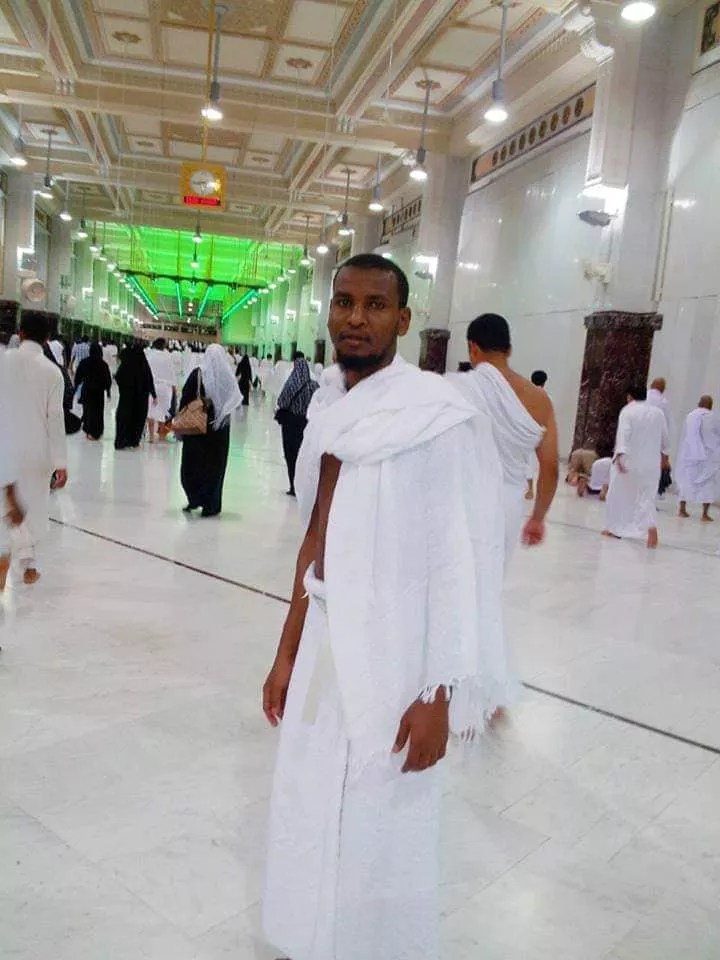
Courtesy Muktar Sheikh

Audio By Carbonatix
Phoenix police shot and killed Ali Osman, a 34-year-old Black man, on Saturday during an incident that’s sparking outrage among some activists and the city’s close-knit Somali community to which he belonged.
It’s the seventh fatal shooting by Phoenix police in 2022 and the first since Chief Michael Sullivan took command of the agency on September 12.
“He’s someone who needed help,” said Muktar Sheikh, a community organizer with the Somali Association of Arizona, who told Phoenix New Times he had known Osman and his family for years. “Instead, somehow, the Phoenix police decided to shoot him.”
The Phoenix Police Department has released few details about the deadly incident. A police spokesperson confirmed to New Times that body camera footage from officers involved will be released by October 8.
In a brief statement to media outlets on September 25, police said officers encountered Osman at the intersection of 19th Avenue and Tuckey Lane about 6:45 p.m. on Saturday. As two police vehicles drove through the intersection, police said the cruisers were struck by “unknown items.” The officers left the area, talked with one another about what happened and doubled back, police said.
Osman threw rocks at the police vehicles as they approached, according to the agency’s description of the shooting. “Commands were given for the man to stop. He did not; that’s when the officer involved shooting occurred,” police said.
Osman did not have any weapons, according to information released about the shooting.
A bystander’s video of the incident that is circulating on social media shows three patrol cars parked at the southwestern corner of Tuckey Lane and 19th Avenue. New Times was not able to reach the witness or confirm his identity. In the video, the man is heard begging the police to allow him to intervene from the other side of 19th Avenue.
“You’re going to end up shooting this motherfucker and killing him,” he said, informing the officers he was certified with the state as mental health support. “Hey, does he have any weapons? I can talk to him. I’ll de-escalate it.”
An attorney for Ali Osman’s family, Quacy Smith, has referenced the video in statements to media. A Phoenix police spokesperson told New Times there was “no way” the agency could confirm its authenticity. Smith did not reply to inquiries from New Times. One of Osman’s sisters did not return a call from New Times.
The family spoke to ABC15 after the killing. “I believe it was wrong what happened to Ali,” said Osman’s sister, who was not identified in the report.
‘A Complete Failure’ by Phoenix Police

Ali Osman was spiritual and involved in his community, despite his mental health struggles, those who knew him said.
Courtesy Muktar Sheikh
Osman had a documented history of mental health struggles, according to court records obtained by New Times. In 2012, Osman was hospitalized for an unspecified period of time due to mental health issues, according to records from a later criminal case.
Before the fatal shooting, Osman’s only serious encounter with law enforcement came in 2017, according to court records. That’s when he was convicted for having an unauthorized gun in his car while returning to the U.S. from Mexico. During sentencing, his attorney, Erin Carrillo, told the judge about Osman’s mental health history. “He’s somebody who is a very religious and spiritual individual,” Carrillo said. “He lives his faith, and that faith is one of peace.”
“Mr. Osman does not have a history of violence. He does not have a history of any gun offenses. He has a very limited criminal history,” Carrillo added.
Sheikh said that Osman and his family were refugees who lived in Tucson and later in Phoenix. Sheikh remembered him as a “businessman” and someone “very involved in the community” before Osman started to struggle with his mental health.
The fatal shooting is the first since Sullivan became chief of the department earlier this month. A police spokesperson did not reply to inquiries from New Times about whether the process for releasing information about police killings has changed under Sullivan, or whether the chief had any statement.
It’s the seventh fatal police shooting in Phoenix this year, according to the Washington Post‘s nationwide database of police killings. In all of 2021, there were seven fatal shootings in Phoenix and 13 police shootings in total, down from the department’s deadly peak of 23 fatal shootings in 2018.
The agency faces a Department of Justice probe in part due to its fatal shootings and use of force. For years, activists have protested the department’s response to people facing mental health crises.
The incident is sparking national outcry. We Are All America, an organization that supports refugees and asylum-seekers, criticized Phoenix police for the fatal shooting. “It is disturbing to see a complete failure in the way that officers responded to a community member having a mental health crisis,” the organization wrote in a statement. “The Phoenix Police Department must take responsibility for their increased police violence against Black and brown communities.”
For years, Sheikh said, he and other organizers have pushed Phoenix police to handle such incidents better. “I don’t know what else we can do. We’ve protested. We’ve elected officials. What else can we do?” he asked.